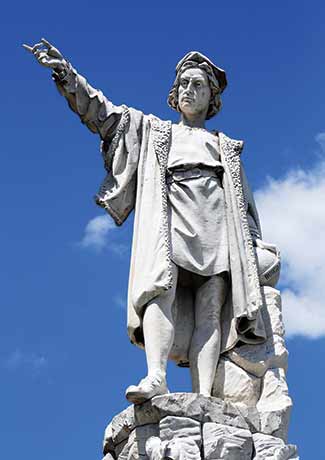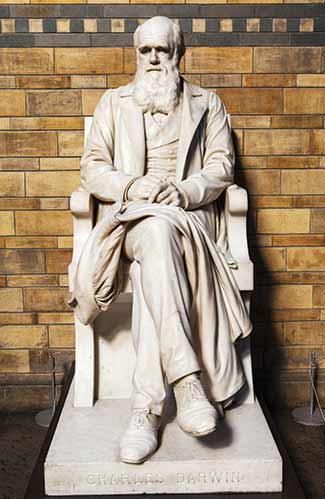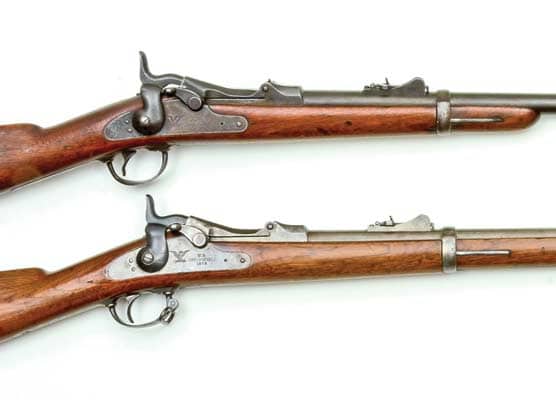Another Forgotten Veterans Day Story
Just Some Guy Named “Smith”
In February 1890, for reasons unknown, a doctor in Atlanta, Georgia, christened his son Columbus Darwin Smith. Maybe he expected or hoped his boy might become a seafarer. But I seriously doubt he could have foreseen his child would out-sail, out-steam and vastly out-travel both of his namesakes, or, that he would hold a place in history as the first American military officer to be taken prisoner by the Japanese Empire in World War II. However, those who knew him might have suspected that as a POW he would also prove to be one of the Empire’s biggest pains-in-the-butt.
At 16, Smith left home determined to become a sailorman. He must have studied the art a lot, because despite being a landlubber, he immediately got work on a sailing schooner running fresh fruit out of Tampa into the Florida Keys. Over the following decade he polished his skills as a seaman, honed his knowledge of wind, water and the Caribbean, and gained considerable experience and responsibilities. When America entered WWI, the Navy commissioned him as a lieutenant and sent him after the Austro-Hungarian Navy in the Mediterranean. Smith quickly adapted from wooden ships under sail to steel warships under steam and earned a reputation for cool decisiveness in emergencies. At the war’s end he was ready to become a ship’s master—and he needed more “sea room.”
Smith found plenty of room in the broad Pacific, where he fell under the spell of the Pacific Rim and Asia. For another decade he skippered ships of all sizes and types and, on navigable rivers, he found he had a talent for reading currents and eddies, shifting sandbars, and the whims of tides in brackish waters. Smith knew every twist, turn and temper-tantrum of the Yangtze for 2,000 miles, and in 1929, he took a lucrative position piloting ships up and down the muddy, malevolent monster.
In March of 1941, Smith was an “old China hand.” He spoke Chinese and Japanese fluently, and other dialects well enough to get by over dinner or on a stormy weatherdeck. He kept a nice shoreside home in Shanghai, and often entertained international guests—including Japanese naval officers. Out of the blue, American officials offered Smith a new commission and command of the Wake, a gunboat which was also a radio-intelligence platform. At 51 years old, with a single signature, he became the ranking US Navy officer in China.
No Turkeys, Just Bombs and Shackles
December: The evening before the bombs dropped on Pearl, Smith was relaxing at his shoreside home. The Wake was tied up at the docks, short-staffed over the weekend with a handful of radio operators. Other US and British warships were cruising elsewhere, leaving only Wake and the Brit gunboat HMS Peterel in port. Smith received a phone call from a Japanese naval officer, a friendly acquaintance, who asked if Smith would be aboard Wake the next morning. He had an abundance of turkeys, and wanted to deliver several to Wake’s crew as a gift. It was not an unusual occurrence; such courtesies had gone both ways. Smith didn’t realize the call’s true purpose.
At 0400 Japanese Imperial Marines swarmed the docks. Smith arrived to a fait accompli. He was put under close guard on the pier. The Peterel’s crew had detected the Japanese advance and put up what resistance they could with only a few minutes’ notice. Peterel was blasted with heavy guns and set ablaze. Smith could only watch as the Japanese machinegunned unarmed British sailors swimming away from their sinking, burning ship. Smith protested the senseless slaughter, but the Japanese attitude was, “We are at war now—and we’re winning it.” America was at war—and already losing it. Thus began a new career direction for Commander Columbus Darwin Smith: Driving his captors nuts. He immediately began plotting mischief and escape.
Initially, while in custody of the Japanese Navy, Smith and other POW’s were treated roughly but not cruelly. However, after being handed over to the Imperial Army, beatings, torture and calculated malnourishment ensued. Once, after being hung by his hands and beaten, Smith told his captors their acts were barbarous. He said they seemed genuinely surprised at the concept. They explained they were Japanese—civilized people—and all other peoples were barbarians. Ergo, their actions could not be barbarous.
Ultimately Smith concluded after so many routine beatings and torture, including burnings, bayonetting, electrical shock and often fatal water torture, the torturers had no real expectation of learning anything from their victims; the abuse was just pro forma carrying out of the perquisites of conquerors. Since the POWs had either surrendered—an irredeemably dishonorable act—or allowed themselves to be captured, yet did not commit seppuku, it was the duty of honorable men to punish them. The notion poured gasoline on Smith’s fire…
The Long Road Back
Jammed into the filth of the notorious Woosung POW camp upriver from Shanghai, conditions became worse when 2,000 more prisoners, captured on Wake Island, were added to the population. The one positive note for Smith was meeting three enthusiastic co-conspirators: US Navy Commander Winfield Scott Cunningham, who had been the ranking officer on Wake, big Dan Teters, an ex-University of Washington football star who was boss of the civilian construction workers on the island and Royal Navy Commander John Woolley.
After stealthily stealing equipment and supplies for a breakout, they belly-crawled through 300 yards of knife-edged rocks and wormed through electrified barbed wire carrying 22,000 volts. Unfortunately, a pea-soup fog hampered their navigation. Hearing Chinese being spoken, they thought they had found friends—but it was a patrol of Chinese soldiers working for the Japanese. Back at camp, the guards didn’t believe Smith’s escape story. They claimed it was impossible. At gunpoint, they forced Smith to re-enact his escape, including his lizard-like slithering through the electrified wire. They expected to see him electrocuted. He disappointed them.
This was Smith’s first escape attempt. More followed. Caught after each one, he was repeatedly stripped, beaten, tortured and further isolated. The Japanese were infuriated, but held off executing him, perhaps because of the notion he had planted in their minds: That as a high-ranking officer, he could be valuable “trade goods” in a future prisoner exchange.
Finally, Smith was formally charged in a military court with attempted escape, defying the authority of the Emperor and generally being a major pain for the Empire. He was sentenced to death by beheading, to be carried out forthwith. Smith never learned why execution of the sentence was delayed, but while he had it, he used his head to concoct one more last-gasp escape plan.
Teaming up again with British Commander John Woolley and a new accomplice, young US Marine Jerold Storey, they weaseled out of the maximum-security Ward Road Jail in Shanghai. The Japanese jailers wasted a lot of time searching and re-searching the Ward Road compound, because Smith and his pals couldn’t have actually broken out! Could they? Nah…
It was September, 1944. Columbus Darwin Smith was 54 years and 8 months old. He had been declared dead by his own government. Smith had been starved, beaten, tortured and diseased for nearly 4 years, and his traveling companions weren’t in much better shape. Over the next 7 weeks they walked, staggered, crawled and occasionally floated in “borrowed” sampans over 700 miles of Japanese-held territory, finally reaching Chinese Nationalist lines. They were flown “over the Hump” to safety in India. Along the way they had endlessly argued and ultimately come to agreement on what would be their “freedom feast.” In India, at considerable expense, they finally got it.
On Veterans Day, consider dining on mounds of steak, lobster and French fries, accompanied by iced champagne. A guy named Smith would appreciate it—and so would I. Connor OUT





